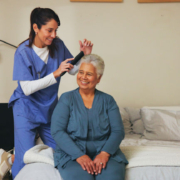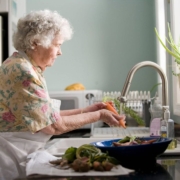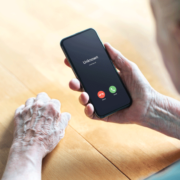Building A Senior Emergency Preparedness Plan
Planning for emergencies is never easy, and it’s even more important when caring for an aging loved one. At River Oaks Home Care, an in-home care service provider in Philadelphia, we specialize in making situations like these more manageable. Our team helps seniors stay safe and supported with tailored care that addresses their unique needs, even in unexpected situations.
From personalized health monitoring to coordinating evacuation plans, we’re here to take some of the weight off your shoulders. We know how overwhelming emergencies can feel, but we’re committed to providing the expertise and compassion you need to prepare confidently.
With the right senior emergency preparedness plan in place, you can ensure your loved one stays secure and gets the care they deserve, no matter what comes their way.
Understand Medical and Daily Care Needs
Consult with your loved one’s healthcare professionals to gather detailed information about their medical history and health status. This collaboration ensures that all relevant aspects of their care plan are based on professional guidance and tailored to their needs.
Consider the following critical points when assessing their medical and daily care requirements:
- Chronic Condition Management: Determine the specific actions required to manage chronic conditions such as heart disease or arthritis, including necessary treatments, regular monitoring, and dietary guidelines tailored to their condition.
- Medication Administration: Ensure a complete and updated list of medications is maintained, with clear instructions on dosages, timing, and potential side effects to monitor. Clarify any specific interactions or precautions with their in-home care provider.
- Daily Mobility and Assistance Needs: Evaluate any support required for daily tasks such as bathing, dressing, or meal preparation. Identify equipment or modifications, such as grab bars or mobility aids, to enhance safety and independence.
With the help of our in-home care service in Philadelphia, seniors can receive assistance with these daily tasks to maintain their independence and dignity.
Create a Support Network
A strong support network can help when unexpected situations arise. Family members should stay connected and regularly check in to offer assistance or guidance. Trusted neighbors can play an important role by keeping an eye out for potential concerns and providing help when needed.
Professional caregivers should be carefully selected and well-trained. They need clear instructions on how to act during emergencies and the resources available to them. Caregivers should also maintain open communication with family members and medical professionals. This collaboration ensures that loved ones receive reliable and consistent care at all times.
Establish a Caregiver Communication Chain
In the senior emergency preparedness plan, start by making a list of all caregivers, family members, and emergency contacts who need to stay in touch during a crisis. Share this list with everyone involved to ensure they have accurate contact information. Include phone numbers, email addresses, and any alternate ways to reach each person. Keeping the list updated is important so that no one is left out during an emergency.
Provide caregivers with access to backup communication tools in case regular methods fail. Test these tools in advance and teach everyone how to use them properly. Encourage caregivers to practice using text alerts, emergency radios, or mobile apps specifically designed for emergencies. Simple preparation helps reduce stress and confusion when a real emergency happens.
Ready to Hire an In-Home Care Service Provider in Philadelphia?
Emergency preparedness can feel overwhelming, but the right support makes all the difference. River Oaks Home Care is here to guide you every step of the way, ensuring your loved one’s needs are met with care and precision. With a solid plan and our dedicated team, you can face any situation knowing your loved one is safe, comfortable, and supported.
Key Takeaways
How can I prepare for my aging loved one’s medical needs during emergencies?
Consult healthcare professionals to gather detailed information about their medical history and treatments. Keeping an updated list of medications and clearly defined care instructions ensures appropriate responses during emergencies.
What role does a support network play in emergency preparedness?
A strong support network, including family, trusted neighbors, and professional caregivers, assists when unexpected situations arise. Regular communication and collaboration ensure consistent and reliable care for your loved one.
How can caregivers stay connected during emergencies?
Establish a communication chain with updated contact information for caregivers, family members, and emergency contacts. Provide access to backup tools like emergency radios or mobile apps to maintain contact if regular methods fail.










